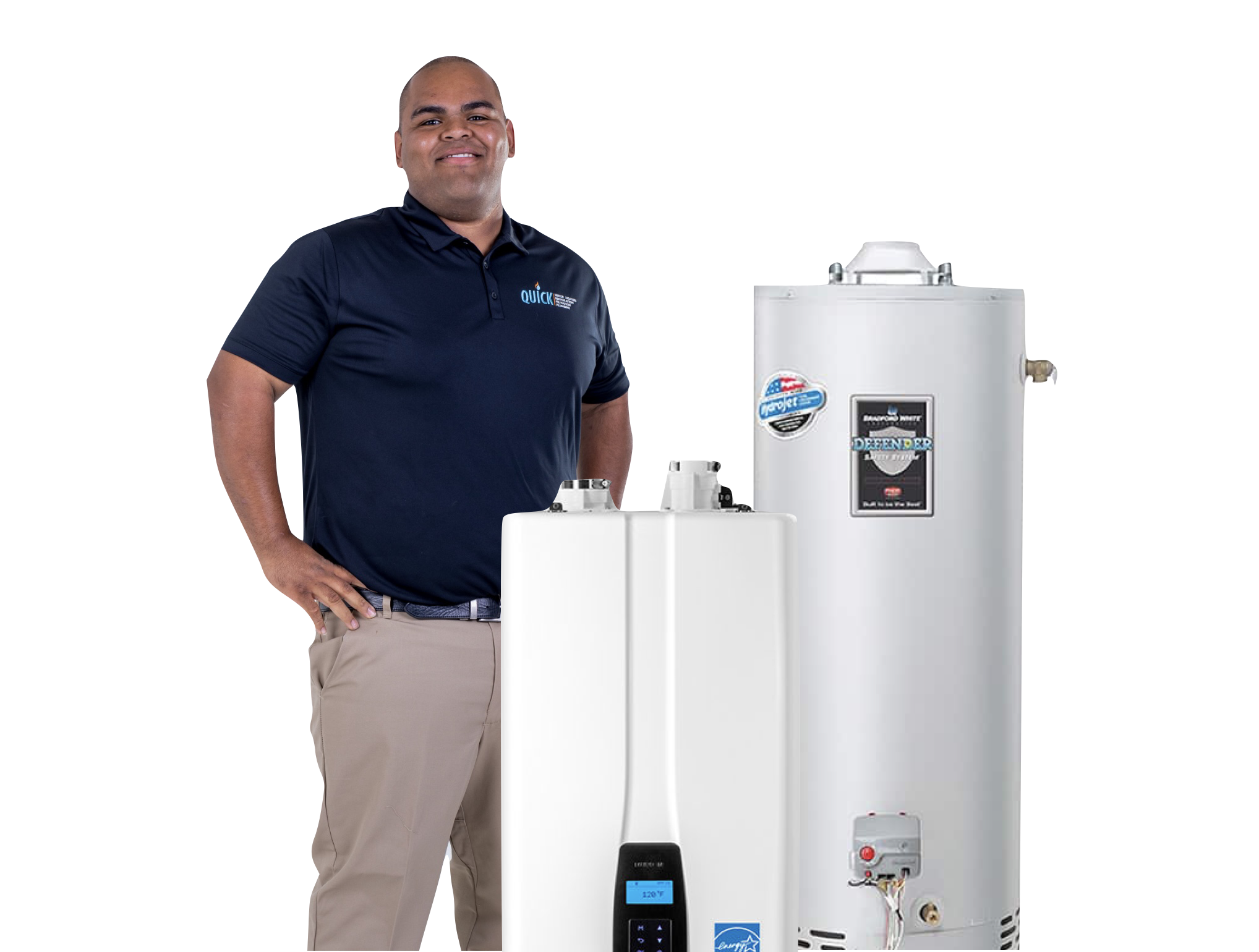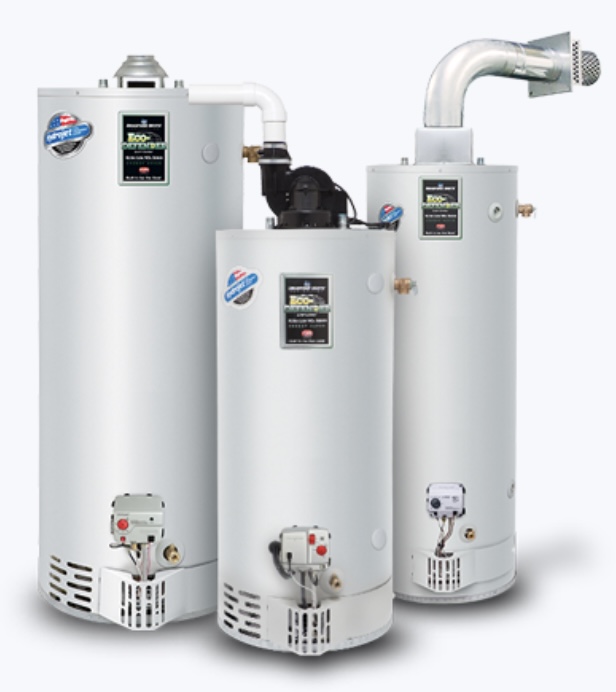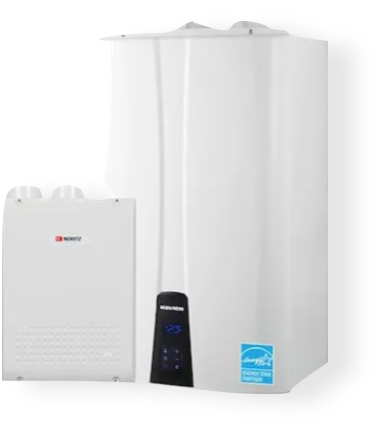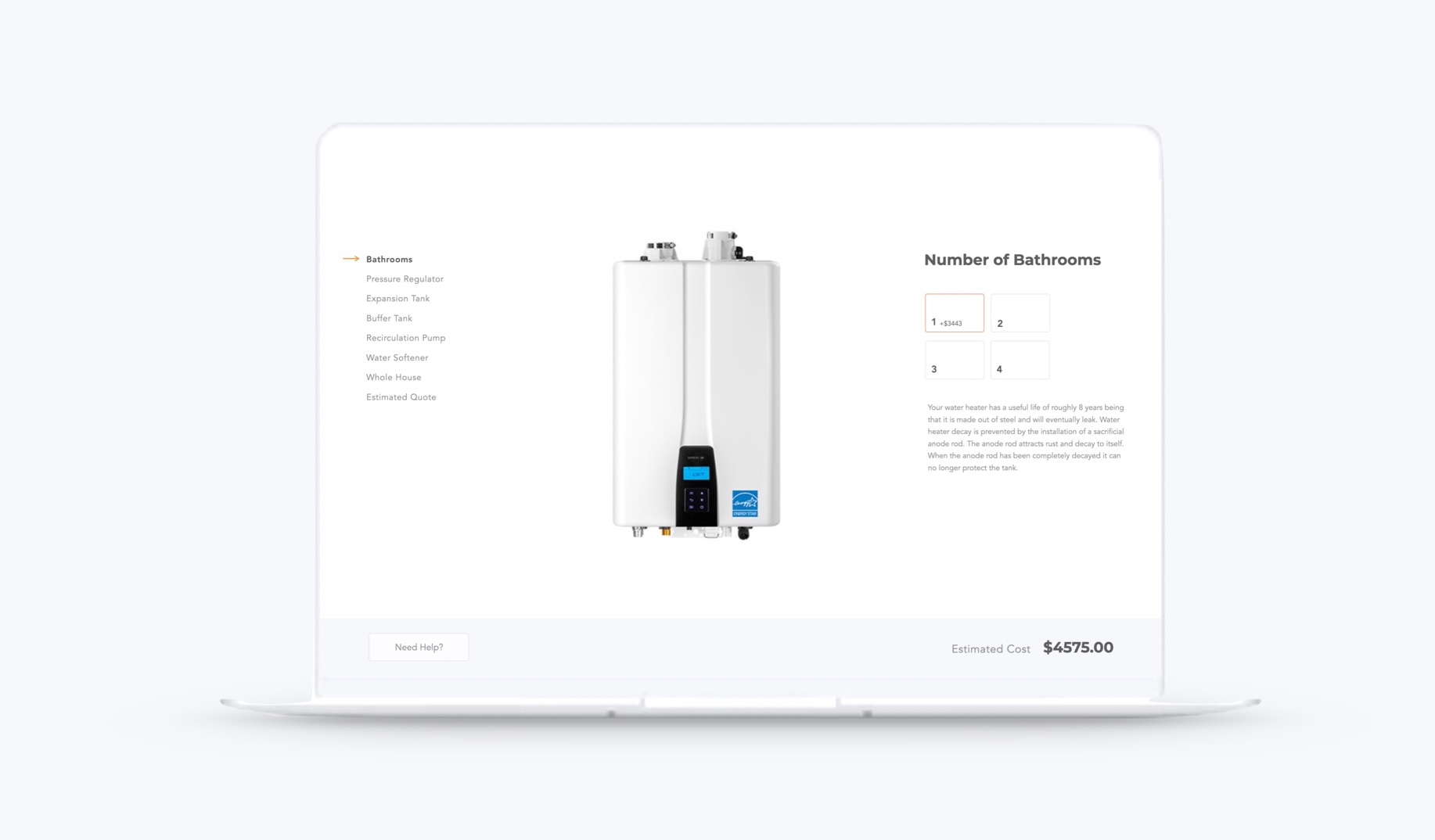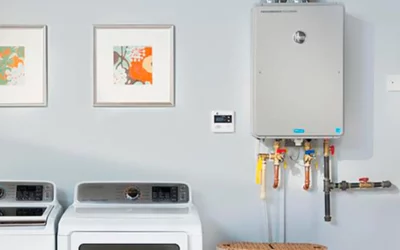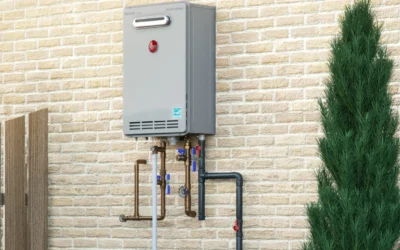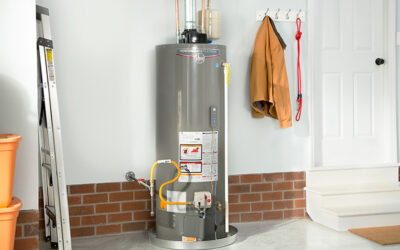The Gas Hot Water Heater Repair Guide provides a comprehensive resource for individuals looking to troubleshoot and repair issues with their gas water heaters. This guide covers a range of topics, from understanding the basics of gas water heaters to common signs of problems to the importance of regular maintenance. It also provides step-by-step instructions for DIY repairs, such as troubleshooting and repairing the pilot light and replacing faulty thermocouples. Additionally, the guide highlights the benefits of professional repair services and offers answers to frequently asked questions about gas water heater maintenance and repair. Whether you are a DIY enthusiast or in need of professional assistance, this guide offers valuable insights to ensure your gas water heater operates efficiently and reliably.
Introduction to Gas Water Heater Repair
This paragraph provides an introduction to gas water heater repair, discussing the importance of understanding the basics of gas water heaters, common signs of problems, and the significance of regular maintenance. It also touches on the availability of DIY repairs and the benefits of professional repair services. Additionally, it includes a section of frequently asked questions related to gas water heater repair.
Understanding the Basics of Gas Water Heaters
Gas water heaters are a common appliance found in many households. Understanding the basics of how they work is essential for homeowners to effectively troubleshoot and maintain their units.
Gas water heaters operate by using natural gas or propane to heat water. They consist of a tank, a burner, a thermostat, and various safety features. The tank is where the water is stored and heated, while the burner is responsible for igniting the gas and generating heat. The thermostat controls the temperature of the water, ensuring it reaches the desired level.
One important aspect to understand is the combustion process that takes place in gas water heaters. When the burner ignites the gas, it produces a flame that heats the water. This combustion process generates combustion byproducts, such as carbon monoxide, which must be safely vented outside the home. Understanding how the venting system works and ensuring it is properly installed and maintained is crucial for the safe operation of a gas water heater.
Additionally, homeowners should be familiar with the different components of a gas water heater. These include the pilot light, thermocouple, gas control valve, and pressure relief valve. Knowing how these components function and being able to identify any issues or malfunctions can help homeowners determine when professional repairs are needed.
Overall, understanding the basics of gas water heaters is essential for homeowners to maintain the efficiency and safety of their units. Regular maintenance, troubleshooting, and awareness of common problems can help ensure the longevity and proper functioning of gas water heaters in any household.
Common Signs of Gas Water Heater Problems
Common signs of gas water heater problems can help homeowners identify issues and take prompt action to prevent further damage. One common sign is a lack of hot water or insufficient hot water supply. If the water heater is not producing enough hot water or the water is not getting hot at all, it could indicate a problem with the gas burner or pilot light.
Another sign of a gas water heater problem is unusual noises coming from the unit. If there are loud banging, popping, or rumbling sounds, it could be a sign of sediment buildup in the tank or a faulty heating element. Ignoring these noises can lead to more serious issues and potentially even a complete breakdown of the water heater.
Additionally, leaks around the water heater are a definite warning sign. Any signs of water pooling around the unit or dripping from pipes or fittings should be addressed immediately. Leaks can indicate a variety of problems, including a faulty pressure relief valve, a damaged water tank, or corroded pipes.
Inconsistent water temperatures can also be a sign of gas water heater problems. If the water temperature fluctuates between hot and cold while using hot water, it may be due to a malfunctioning thermostat or a faulty gas valve.
Lastly, a strong smell of gas near the water heater should never be ignored. A gas leak is a serious safety hazard and requires immediate attention. Homeowners should turn off the gas supply to the water heater and contact a professional for repairs.
Recognizing these common signs of gas water heater problems is crucial in order to address issues promptly and prevent further damage.
Importance of Regular Maintenance for Gas Water Heaters
Regular maintenance is crucial for ensuring the proper functioning and longevity of gas water heaters. By regularly maintaining your gas water heater, you can prevent potential problems, improve energy efficiency, and extend its lifespan.
One of the key reasons why regular maintenance is important for gas water heaters is to identify and address any minor issues before they turn into major problems. During routine maintenance, a professional technician can inspect the various components of the heater, such as the burner, pilot light, thermostat, and valves, to ensure they are functioning properly. They can also check for any leaks, corrosion, or sediment buildup that may be affecting the performance of the heater. By catching these issues early on, you can avoid costly repairs or even the need for a complete replacement.
Additionally, regular maintenance helps to improve the energy efficiency of your gas water heater. Over time, sediment can accumulate at the bottom of the tank, reducing its efficiency and causing it to work harder to heat the water. During maintenance, the technician can flush out the sediment, ensuring optimal heat transfer and energy efficiency. This not only helps to reduce your energy bills but also minimizes the strain on the heater, potentially extending its lifespan.
Furthermore, regular maintenance of gas water heaters is essential for safety reasons. Gas leaks or faulty components can pose serious risks, such as carbon monoxide poisoning or fire hazards. Through routine maintenance, a professional can detect any potential safety issues and make the necessary repairs or replacements to ensure your water heater operates safely.
In conclusion, the importance of regular maintenance for gas water heaters cannot be overstated. It not only helps to prevent major problems and improve energy efficiency but also ensures the safety of your household. By scheduling regular maintenance with a trusted professional, you can enjoy reliable hot water and peace of mind.
DIY Gas Water Heater Repairs
This section provides a comprehensive guide on how to troubleshoot and repair common issues encountered with gas water heaters, empowering homeowners to take on DIY repairs with confidence.
How to Troubleshoot Gas Water Heater Issues
If you are experiencing issues with your gas water heater, troubleshooting the problem can help you identify and resolve the issue. Here are some steps you can follow to troubleshoot gas water heater issues.
1. Check the power source: Ensure that the gas supply to the water heater is turned on. If the gas valve is closed, open it and check if the pilot light ignites. If the pilot light does not ignite, there may be an issue with the gas supply or the pilot assembly.
2. Inspect the pilot light: If the pilot light is not lit, try relighting it. Follow the manufacturer’s instructions to relight the pilot light. If the pilot light still does not stay lit, there may be a problem with the thermocouple or the gas control valve.
3. Test the thermocouple: The thermocouple is a safety device that detects whether the pilot light is lit. If the thermocouple is faulty, it may not allow gas to flow to the burner, causing the pilot light to go out. Use a multimeter to test the thermocouple for continuity. If it does not have continuity, it may need to be replaced.
4. Check for gas leaks: Gas leaks can be dangerous, so it’s important to check for any signs of gas leakage. Use a gas leak detector or a mixture of soap and water to check for any bubbles around the gas connections. If you detect a gas leak, turn off the gas supply to the water heater and contact a professional for repairs.
5. Inspect the burner: A dirty or clogged burner can cause the water heater to malfunction. Carefully remove the burner assembly and clean it using a soft brush or compressed air. Ensure that all the burner ports are clear of any debris or obstructions.
6. Test the thermostat: If you are not getting hot water or the water is not reaching the desired temperature, the thermostat may be faulty. Use a multimeter to test the thermostat for continuity. If it does not have continuity, it may need to be replaced.
By following these troubleshooting steps, you can often identify and resolve common gas water heater issues. However, if you are unsure or uncomfortable performing these tasks, it is always recommended to seek professional assistance to avoid any potential risks or further damage to your gas water heater.
Step-by-Step Guide to Gas Water Heater Pilot Light Repair
If you are experiencing issues with your gas water heater pilot light, you may need to perform a repair. Follow this step-by-step guide to effectively troubleshoot and fix the problem.
1. Safety Precautions: Before starting any repairs, ensure that you turn off the gas supply to the water heater and allow it to cool down completely. It is also advisable to wear protective gloves and eyewear.
2. Locate the Pilot Light: The pilot light is a small flame that ignites the burner in your gas water heater. It is usually located near the bottom of the tank. Remove the access panel to gain access to the pilot light assembly.
3. Check for Obstructions: Inspect the area around the pilot light for any debris, dust, or other obstructions that may be preventing it from igniting or staying lit. Use a soft brush or compressed air to clean the area if necessary.
4. Relight the Pilot Light: If the pilot light has gone out, follow the manufacturer’s instructions to relight it. This typically involves turning the gas control knob to the pilot position, pressing and holding it down while using a long-reach lighter or match to ignite the pilot light.
5. Adjust the Flame: Once the pilot light is lit, check the flame. It should be a steady, blue flame with a small yellow tip. If the flame is too weak or too high, adjust the flame using the pilot control valve. Refer to the owner’s manual for specific instructions on adjusting the flame.
6. Test the Thermocouple: The thermocouple is a safety device that detects if the pilot light is lit. If the thermocouple is faulty, it may shut off the gas supply to the pilot light. Use a multimeter to test the thermocouple for continuity. If it is not functioning properly, it may need to be replaced.
7. Replace Faulty Components: If you have followed the above steps and the pilot light still won’t stay lit, there may be a faulty component such as the gas control valve or the thermocouple. Consult a professional gas water heater repair technician to diagnose and replace any faulty parts.
Remember, if you are not comfortable performing these repairs or if the issue persists, it is best to seek the assistance of a professional gas water heater repair service. They have the expertise and experience to properly diagnose and fix any problems with your gas water heater.
Replacing Faulty Gas Water Heater Thermocouples
Replacing faulty gas water heater thermocouples is a common repair task that homeowners can tackle on their own. A thermocouple is a safety device that detects whether the pilot light is lit or not. If the thermocouple is faulty, it can cause the pilot light to go out, resulting in no hot water.
To replace a faulty thermocouple, start by turning off the gas supply to the water heater. This can usually be done by turning the gas control valve to the “off” position. Next, locate the thermocouple, which is typically mounted near the pilot light.
Using a wrench or pliers, disconnect the thermocouple from both the gas control valve and the pilot assembly. Take note of the orientation of the thermocouple before removing it to ensure proper installation of the new one.
Purchase a compatible replacement thermocouple from a hardware store or online retailer. When installing the new thermocouple, make sure it is properly aligned and connected to both the gas control valve and the pilot assembly. Use the wrench or pliers to tighten the connections securely.
Once the new thermocouple is installed, turn the gas supply back on and relight the pilot light. Test the water heater to ensure it is producing hot water again. If the pilot light remains lit and the water heats up, the replacement of the faulty thermocouple was successful.
Keep in mind that if you are not comfortable or confident in performing this repair yourself, it is always best to hire a professional gas water heater repair service. They have the knowledge and expertise to safely and effectively replace faulty thermocouples and handle any other issues that may arise during the repair process.
Professional Gas Water Heater Repair Services
When it comes to professional gas water heater repair services, it is important to choose a reliable and experienced company like Quick Water Heater. With our transparent pricing and commitment to delivering the highest quality of service, you can trust us to efficiently diagnose and fix any issues with your gas water heater.
When to Call a Professional for Gas Water Heater Repairs
When it comes to gas water heater repairs, knowing when to call a professional is crucial. While there are some minor issues that homeowners can troubleshoot and resolve on their own, certain problems require the expertise of a professional technician. Calling a professional for gas water heater repairs ensures that the issue is diagnosed accurately and fixed correctly, minimizing the risk of further damage or safety hazards.
One common scenario where it is advisable to seek professional help is when there is a gas leak. Gas leaks can be extremely dangerous and should never be taken lightly. If you detect the smell of gas or suspect a leak, it is essential to evacuate the premises immediately and contact a professional gas water heater repair service. They have the necessary equipment and expertise to detect and fix the gas leak safely.
Another instance when it is prudent to call a professional is when the gas water heater’s pilot light keeps going out. While relighting the pilot light is a simple task that homeowners can often handle themselves, persistent issues with the pilot light may indicate a more significant problem. A professional technician can inspect the heater, identify the root cause of the pilot light issues, and perform the necessary repairs or replacements.
Additionally, if you notice a significant decrease in hot water production or inconsistent water temperatures, it may be a sign of a more complex problem with your gas water heater. A professional can assess the situation, diagnose any underlying issues, and recommend the appropriate repairs or replacements. They have the knowledge and experience to ensure your gas water heater is functioning efficiently and providing an adequate supply of hot water.
When choosing a professional gas water heater repair service, it is essential to consider their reputation and track record. Look for companies that have a proven history of providing reliable and high-quality service, like Quick Water Heater in San Diego County. With their transparent pricing and commitment to customer satisfaction, you can trust them to handle your gas water heater repairs with professionalism and expertise.
Choosing the Right Gas Water Heater Repair Company
When it comes to choosing the right gas water heater repair company, there are a few key factors to consider. First and foremost, it is important to find a company that is experienced and knowledgeable in gas water heater repairs. Look for a company that has a proven track record of successfully repairing gas water heaters.
Additionally, consider the reputation of the company. Look for reviews and testimonials from previous customers to get an idea of the quality of their service. A reputable company will have positive feedback from satisfied customers.
It is also essential to choose a gas water heater repair company that is licensed and insured. This ensures that they have the necessary qualifications and protection in case of any accidents or damages during the repair process.
Another important aspect to consider is the availability and responsiveness of the company. A reliable repair company should be able to respond promptly to your repair needs and provide efficient service.
Lastly, consider the pricing and warranty options offered by the repair company. Compare prices from different companies to ensure you are getting a fair and competitive rate. Additionally, inquire about any warranties or guarantees offered on the repair work to give you peace of mind.
By carefully considering these factors, you can make an informed decision and choose the right gas water heater repair company for your needs.
Benefits of Professional Gas Water Heater Repair Services
Professional gas water heater repair services offer several benefits for homeowners. First and foremost, these services provide expertise and experience in diagnosing and resolving complex issues with gas water heaters. Trained professionals have a deep understanding of the inner workings of these systems and can quickly identify the root cause of any problem.
In addition, opting for professional repair services ensures that the repairs are done correctly and safely. Gas water heaters involve working with combustible materials and potentially hazardous components, such as gas lines and pilot lights. Attempting DIY repairs without proper knowledge and skills can lead to accidents or further damage to the system.
Moreover, professional repair services often come with warranties or guarantees on their work. This provides homeowners with peace of mind, knowing that if any issues arise after the repair, they can rely on the service provider to address them promptly and effectively.
Another advantage of hiring professionals for gas water heater repairs is the time and effort saved. DIY repairs can be time-consuming and frustrating, especially for individuals with limited experience in plumbing or appliance repairs. By relying on professionals, homeowners can focus on their daily routines and leave the repair work in capable hands.
Lastly, professional repair services can offer valuable advice on maintenance and preventive measures to prolong the lifespan of gas water heaters. They can provide recommendations on regular maintenance tasks, such as flushing the system, checking for leaks, or replacing worn-out components, ensuring optimal performance and efficiency.
Overall, choosing professional gas water heater repair services brings expertise, safety, peace of mind, time savings, and expert advice to homeowners. When facing issues with their gas water heater, homeowners can rely on reputable service providers like Quick Water Heater to deliver the highest quality repair services.
Frequently Asked Questions (FAQ)
Frequently Asked Questions (FAQ) provide answers to common queries about gas water heater maintenance, troubleshooting, repairs, and costs to help homeowners make informed decisions and understand the necessary steps for ensuring the longevity and efficiency of their gas water heaters.
Q1: How often should I flush my gas water heater?
Flushing your gas water heater on a regular basis is crucial for maintaining its performance and extending its lifespan. It is recommended to flush the tank at least once a year to remove sediment and mineral buildup that can accumulate over time. This buildup can affect the efficiency of your water heater and lead to problems such as reduced hot water output and increased energy consumption.
Flushing the gas water heater involves draining the tank to remove the sediment. This can be done by turning off the gas supply and cold water inlet valve, attaching a hose to the drain valve at the bottom of the tank, and allowing the water to drain into a suitable drainage area. It is important to follow the manufacturer’s instructions and safety precautions when performing this task.
Regular flushing helps prevent corrosion and sediment buildup, which can cause damage to the tank and other components of the water heater. It also helps maintain the quality of your hot water by removing any unpleasant odors or tastes that may result from stagnant water or sediment accumulation.
If you notice any signs of sediment buildup, such as reduced hot water flow or strange noises coming from the tank, it is recommended to flush the gas water heater more frequently. Additionally, if you live in an area with hard water, which contains a high concentration of minerals, you may need to flush the tank more often to prevent excessive buildup.
By regularly flushing your gas water heater, you can ensure its optimal performance, improve energy efficiency, and prolong its overall lifespan. It is a simple maintenance task that can save you from costly repairs and replacements in the long run.
Q2: Why is my gas water heater not producing hot water?
There can be several reasons why a gas water heater may not be producing hot water. One possible cause could be a malfunctioning pilot light. If the pilot light is not lit or if it keeps going out, it can prevent the water heater from heating the water. In such cases, it is recommended to follow the step-by-step guide to gas water heater pilot light repair, which provides instructions on how to relight the pilot light.
Another possible reason for a lack of hot water could be a faulty thermocouple. The thermocouple is a safety device that senses whether the pilot light is lit and allows the gas valve to open and supply gas to the burner. If the thermocouple is faulty, it may not be sending the correct signal to the gas valve, causing it to shut off the gas supply. Replacing the faulty thermocouple can help resolve this issue.
Additionally, sediment buildup in the water tank can also lead to a decrease in hot water production. Over time, minerals and debris can accumulate at the bottom of the tank, hindering the heating process. Flushing the gas water heater periodically can help remove the sediment and improve its performance.
It is worth noting that while some gas water heater issues can be resolved through DIY repairs, it is always recommended to consult a professional if you are unsure or uncomfortable with performing the repairs yourself. A professional gas water heater repair service can accurately diagnose the problem and provide the necessary repairs or replacements to ensure the efficient and safe operation of the water heater.
Q3: Can I repair a gas water heater on my own?
Repairing a gas water heater on your own can be a challenging task, especially if you are not familiar with the inner workings of the appliance. Gas water heaters involve complex mechanisms and involve potentially dangerous elements like gas lines and electrical components. Therefore, it is generally recommended to leave gas water heater repairs to professionals who have the necessary expertise and experience.
Attempting to repair a gas water heater on your own can be risky and may lead to further damage or potential safety hazards. Gas leaks, faulty electrical connections, or improper repairs can result in gas leaks, fires, or even explosions. Additionally, tampering with the gas water heater without proper knowledge can void any existing warranties, leaving you responsible for all repairs and replacement costs.
Professional gas water heater repair technicians possess the required skills, knowledge, and tools to diagnose the issue accurately and carry out the necessary repairs safely. They are trained to handle gas connections, electrical systems, and other technical aspects, ensuring that the repair is done correctly and without compromising your safety.
Moreover, hiring a professional for gas water heater repairs provides additional benefits. They can identify underlying issues that may have caused the problem, preventing further breakdowns in the future. Additionally, professionals can offer advice on maintenance practices to extend the lifespan of your gas water heater and improve its energy efficiency.
While it may be tempting to save money by attempting DIY repairs, it is crucial to prioritize safety and the long-term functionality of your gas water heater. Contacting a professional repair service will not only ensure that the repairs are done correctly but also give you peace of mind knowing that your gas water heater is in capable hands.
Q4: What are the typical costs of gas water heater repairs?
When it comes to gas water heater repairs, the costs can vary depending on the specific issue and the extent of the damage. Generally, the typical costs of gas water heater repairs can range from a few hundred dollars to several thousand dollars.
Some common repairs that may incur costs include fixing a faulty pilot light, replacing a faulty thermocouple, repairing or replacing a faulty gas valve, fixing a leaking tank, or addressing issues with the burner or heating element.
The exact costs will also depend on factors such as the location, the complexity of the repair, and the rates charged by the repair service or professional. It is always recommended to obtain multiple quotes from reputable repair companies to ensure you are getting a fair price.
Additionally, it’s important to consider the cost-effectiveness of the repair. In some cases, if the repair costs are too high or if the water heater is old and nearing the end of its lifespan, it may be more cost-effective to replace the unit altogether.
Overall, the typical costs of gas water heater repairs can vary, but it is advisable to budget for potential repair expenses and to consult with a professional to determine the best course of action based on the specific issue and the condition of the water heater.
Q5: How long does a gas water heater last on average?
On average, the lifespan of a gas water heater can vary depending on various factors. However, with proper maintenance and care, a gas water heater can typically last anywhere from 8 to 12 years. Regular maintenance includes flushing the tank to remove sediment buildup, checking and replacing the anode rod, and ensuring proper ventilation and gas supply.
Factors such as the quality of the heater, usage patterns, water quality, and maintenance practices can all affect the lifespan of a gas water heater. If the heater is not properly maintained or experiences excessive wear and tear, its lifespan may be shorter.
To ensure the longevity of your gas water heater, it is essential to have it inspected regularly by a professional. They can identify any potential issues early on and provide the necessary repairs or replacements to extend its lifespan. Additionally, following the manufacturer’s guidelines for maintenance and usage can also contribute to a longer-lasting gas water heater.
If your gas water heater is nearing the end of its lifespan, it may be a good idea to start considering a replacement. Upgrading to a newer, more energy-efficient model can not only provide better performance but also help save on energy costs in the long run.
In conclusion, a gas water heater can typically last between 8 to 12 years with proper maintenance and care. However, factors such as maintenance practices, usage patterns, and water quality can influence its lifespan. Regular inspections and adherence to manufacturer guidelines can help maximize the lifespan of your gas water heater.


